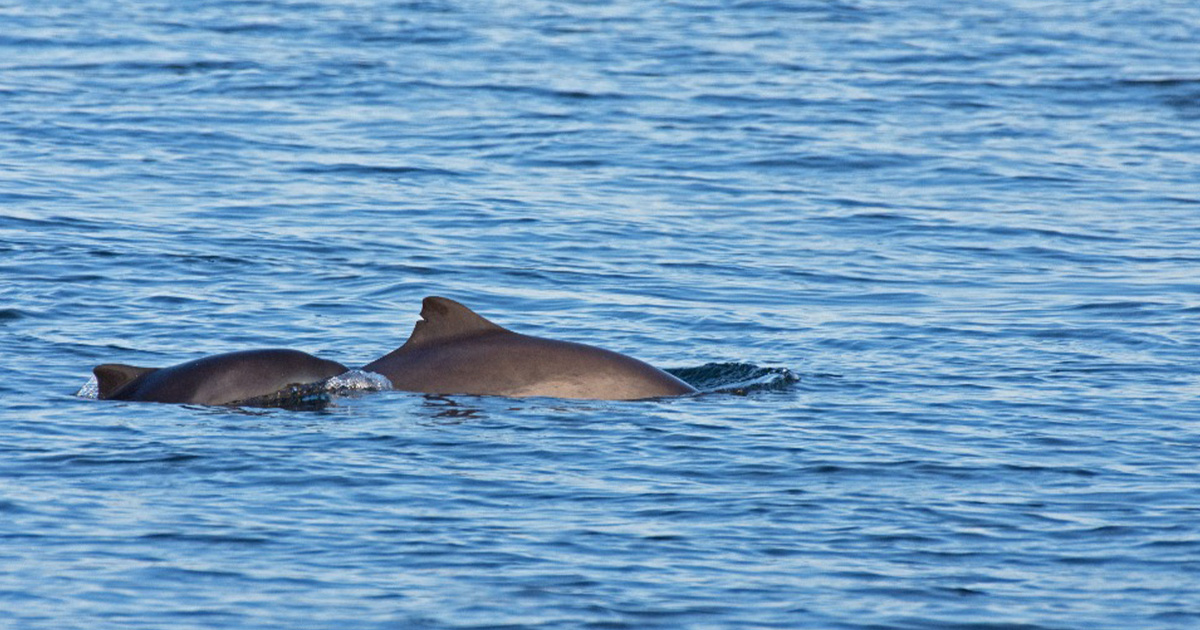Marine Management Organisation (MMO) byelaw to protect valuable marine habitats and species in a further 13 English offshore marine protected areas (MPAs) will come into force on March 22, 2024.
The new management measures will prohibit the use of bottom towed fishing gear in an area of almost 4,000 square kilometers off the English coast. Copies of the bylaw and the decision document which contains a map of MPA sites which have received protection are available online.
Call for evidence on impacts of fishing on harbor porpoise and marine birds
As part of the next stages for managing English offshore marine protected areas (MPAs), we have launched a call for evidence to support the assessment of fishing on harbor porpoise and marine bird MPAs.
From December 5, 2023, to February 13, 2024, we’re asking you to share evidence and your views on the impact of commercial fishing on highly mobile species in offshore MPAs.
MPAs are areas of the ocean established to protect habitats, species, and processes essential for healthy, functioning marine ecosystems.
The purpose of an MPA is to protect and recover rare, threatened, and important habitats and species from damage caused by human activities. In England, MPAs are designated to protect specific habitats or species (also known as ‘features’) and have conservation objectives which state what conservation outcomes the MPA is designed to achieve.
There are 178 MPAs in English waters, covering 51% of inshore and 37% of offshore waters. To view all English MPAs visit our Explore Marine Plans tool.
Protecting MPA species and habitats will contribute to healthier marine ecosystems, and the maintenance and restoration of valuable ecosystem services. Ecosystem services are the benefits we gain from having healthy ecosystems. For example, the maintenance of fish and shellfish populations enables the natural environment to provide stock for our seafood industry which then benefits society through provision of nutrition and employment.
To ensure decisions on MPA management are informed by the best available evidence and a wide range of perspectives, we regularly request views from stakeholders and the public.
This is undertaken through a range of methods including calls for evidence on MMO assessments of the impacts of activities and formal consultations on proposed MMO management. Further information is available to help you understand the MMOs byelaw making process.
Consultations – managing fishing in MPAs
We have launched a call for evidence to support the assessment of fishing in Stage 4 MPAs. These MPAs are designated to protect highly mobile species: marine birds and harbor porpoise.
There are two MPAs designated to protect harbor porpoise in English offshore waters:
- Southern North Sea MPA; and
- Bristol Channel Approaches MPA.
There are three MPAs designated to protect marine birds in English offshore waters:
- Outer Thames Estuary MPA;
- Greater Wash MPA; and
- Liverpool Bay MPA.
MMO is considering the impacts of fishing in these MPAs outside of 6 nautical miles (nm). This call for evidence is split into sections for harbor porpoise and marine birds and includes questions on Stage 4 Fishing Gear MPA Impacts Evidence documents, pressures of interest and potential management options. The purpose of this call for evidence is to seek additional evidence and views from stakeholders on the information provided. This call for evidence is running from the December 5, 2023 to the February 13, 2024.
Previous Consultations
In 2023 we held a formal consultation for Stage 2 MPAs and a call for evidence for Stage 3 MPAs. These ran from January 17, 2023, to March 28, 2023. The Stage 2 consultation sought views on a proposed byelaw to manage bottom towed fishing gear in 13 MPAs.
Consultation documents are available on our Stage 2 consultation page. The Stage 3 call for evidence sought additional evidence and views on evidence and analysis of the impacts of fishing on seabed features in English MPAs. Call for evidence documents are available on our Stage 3 consultation page.
Next Steps
We will review the information received during the Stage 4 call for evidence to update and finalize the Stage 4 Fishing Gear MPA Impacts Evidence documents and inform our understanding of pressures of interest and potential management options. This will be used to inform draft site level assessments, and management options where required, for each of the Stage 4 MPAs.
The information received during the Stage 3 call for evidence has been reviewed. Thank you to everyone who provided a response. Updates are being made to assessments, management documents and impacts evidence documents where appropriate. Where necessary, we will progress the implementation of management measures to ensure relevant MPAs are protected, whilst ensuring we deliver the appropriate levels of consultation with stakeholders. We will be sharing further updates as soon as possible.
Consultations - managing fishing in HPMAs
Following the designation of the first three highly protected marine areas (HPMAs) in England on July 5, 2023, MMO is proposing specific management measures that will support the recovery of these sites to a more natural state. The three HPMAs are Allonby Bay, Northeast of Farnes Deep and Dolphin Head.
As part of the byelaw making process marine stakeholders, partner organizations and fishers were asked to view and comment on the proposed management measures from August 3–September 14, 2023.
This is engagement exercise is now closed and we will provide further updates on the next steps as soon as possible.
Consultations - marine non-licensable activities in MPAs
Marine non-licensable activities are those which do not require a marine license and include a number of marine recreational activities. These include shore-based activities such as bait collection and beach recreation as well as water based activities such as sailing and motor boating.
We manage marine non-licensable activities which take place within MPAs within 0–12 nautical miles. There are currently no live marine no marine non-licensable activity consultations.





